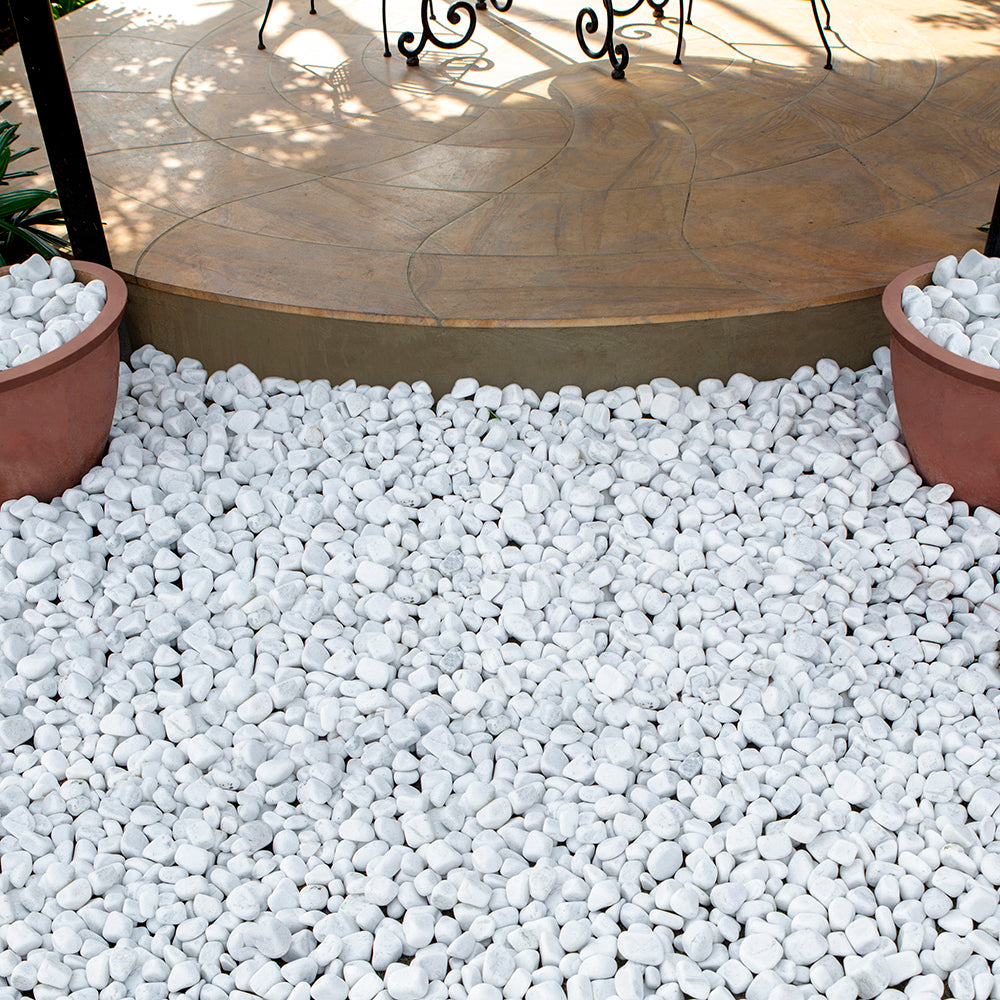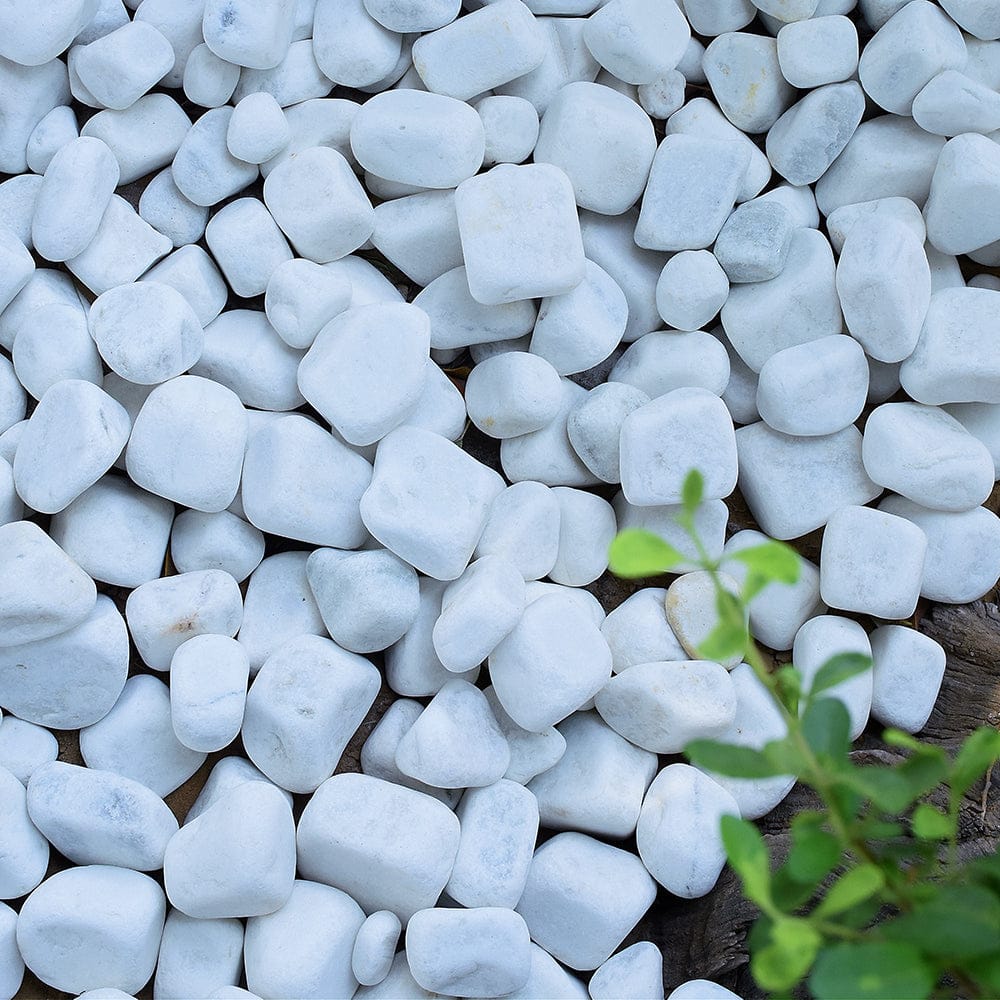Welcome to your go-to resource for understanding the beauty and functionality of white decorative stone! Whether you’re a seasoned landscaper or a novice DIY enthusiast, this article will cover everything you need to know about using white decorative stone in your outdoor spaces. I’ve had personal experience using these stones in various projects, and I can’t wait to share insights that can help you make informed choices.
The Allure of White Decorative Stone
White decorative stone is not just a visual delight; it’s a versatile addition to any landscape. From driveways to garden beds, these stones can elevate the aesthetic appeal while offering practical benefits.
What is White Decorative Stone?
White decorative stone refers to various types of stones, usually crushed or polished, that are utilized for decorative landscaping purposes. They come in various sizes, shapes, and types, with each providing unique benefits.
Common Types of White Decorative Stone
- Crushed White Marble
- White River Rock
- White Pea Gravel
- Limestone Chips

Why Choose White Decorative Stone?
Choosing white decorative stone for your project comes with several advantages:
- Aesthetic Appeal: White stones provide a clean, modern look.
- Versatility: They can be used in various applications from paths to borders.
- Reflective Properties: White stones can help keep spaces cooler by reflecting sunlight.
- Low Maintenance: They require minimal upkeep compared to grass or other plantings.
Applications of White Decorative Stone

One of the best features of white decorative stone is its versatility. Below are some common applications that can bring life to your outdoors.
1. Landscaping Beds
White decorative stones can serve as a beautiful mulch alternative in landscaping beds, helping to suppress weeds while providing excellent drainage.

2. Pathways and Patios
Creating a pathway or patio using white stones can enhance the overall visual appeal of your garden. A well-designed stone path can lead guests to focal points, such as a fountain or seating area.
3. Driveways
Crushed white stone is an excellent choice for driveways. It’s durable, offers good drainage, and lends a high-end look to your home.

4. Water Features
Incorporating white decorative stones in water features can create a striking contrast against the water, making it a focal point of your outdoor design.
Comparison Table: Types of White Decorative Stones
| Type | Texture | Best Used For | Pros | Cons |
|---|---|---|---|---|
| Crushed White Marble | Sharp Edge | Driveways, pathways | Elegant, good drainage | Can be slippery when wet |
| White River Rock | Smooth | Water features, gardens | Natural look, well-draining | Can be more expensive |
| White Pea Gravel | Small rounded | Paths, patios | Cost-effective, easy to walk on | Weeds can grow through |
| Limestone Chips | Rough | Landscaping beds | Affordable, good for drainage | Can break down over time |

Personal Experience: My Journey with White Decorative Stones
When I first began landscaping my garden, I was overwhelmed by the choices available. Finally, I decided to go with white decorative stones for my garden beds. The transformation was astonishing! The stark contrast between the white stones and the vibrant greens of my plants created an inviting atmosphere.

One challenge I faced, however, was keeping the stones clean. After heavy rains, I noticed that mud would splash onto the stones, dulling their shine. To combat this, I invested in a landscape fabric beneath the stones, which not only helped with drainage but also reduced the amount of mud that reached the surface.
Would I choose white decorative stone again? Absolutely! It’s been a joy to work with them and has significantly increased the curb appeal of my home.
Pros and Cons of White Decorative Stone
Pros
- Visual Impact: Enhances the overall aesthetic of your landscape.
- Drought Resistance: Reduces water usage by providing ground coverage.
- Durability: Long-lasting with little maintenance required.
- Versatile Application: Suitable for a wide range of landscaping projects.
Cons
- Heat Retention: Can retain heat, making areas around them warmer.
- Initial Cost: Might be pricier than traditional mulch.
- Weeds: Weeds can still grow through the stones.
Maintenance Tips for White Decorative Stone
To keep your white decorative stone looking fresh and beautiful, follow these maintenance tips:
Regular Cleaning
Periodically wash the stones with water and a gentle scrub brush to remove dirt and debris, keeping them looking vibrant.
Weed Control
Consider using pre-emergent herbicides or landscape fabric to manage weeds effectively.
Replacement and Replenishment
Over time, stones may become discolored or compacted. It’s advisable to replenish them periodically to maintain their original appearance.
Frequently Asked Questions (FAQs)
1. Are white decorative stones more expensive than colored stones?
Generally, white decorative stones can be pricier than colored options due to their popularity and aesthetic appeal. However, the long-term benefits can outweigh the initial costs.
2. Can white decorative stones be used indoors?
Yes! White decorative stones can be a great addition to indoor plants or as part of a decorative centerpiece.
3. How do I prevent weeds from growing through white decorative stones?
Using landscape fabric beneath the stones can greatly help reduce weed growth. Additionally, regular maintenance can keep weeds at bay.
4. What size white decorative stone should I choose for my project?
The size of the stone depends on its intended use. For pathways, smaller stones may be preferable, while larger stones can serve as eye-catching features in gardens.
5. Do white decorative stones fade in color over time?
While white stones may become dull due to dirt and debris, regular cleaning can help maintain their brightness. Long exposure to the sun may cause slight fading, but quality stones are generally durable.
Conclusion
White decorative stone is a versatile and stunning addition to any landscape design. By understanding the various types, applications, pros and cons, and proper maintenance techniques, you can make the most of these decorative stones in your outdoor spaces. From my personal experience, I can confidently say that they not only enhance the beauty of a space but also provide practical benefits that make them a worthwhile investment. Happy landscaping!